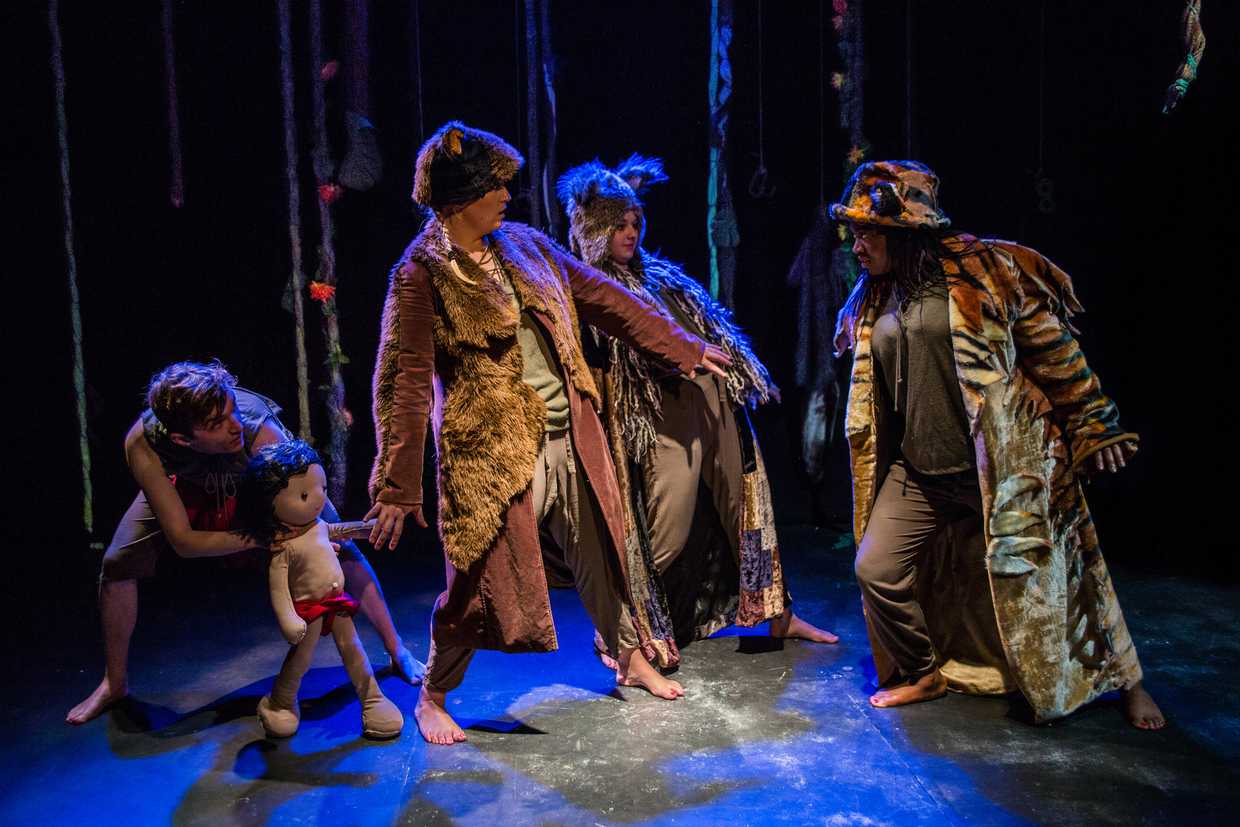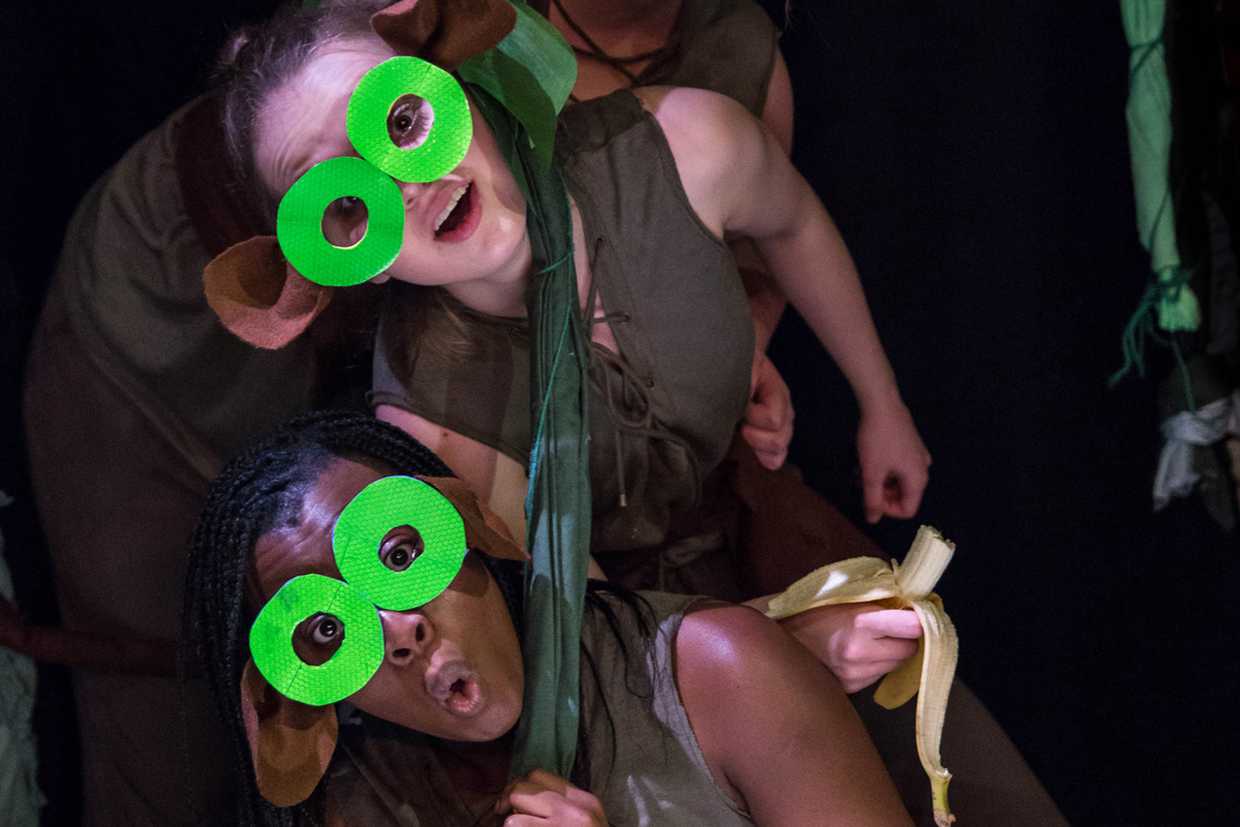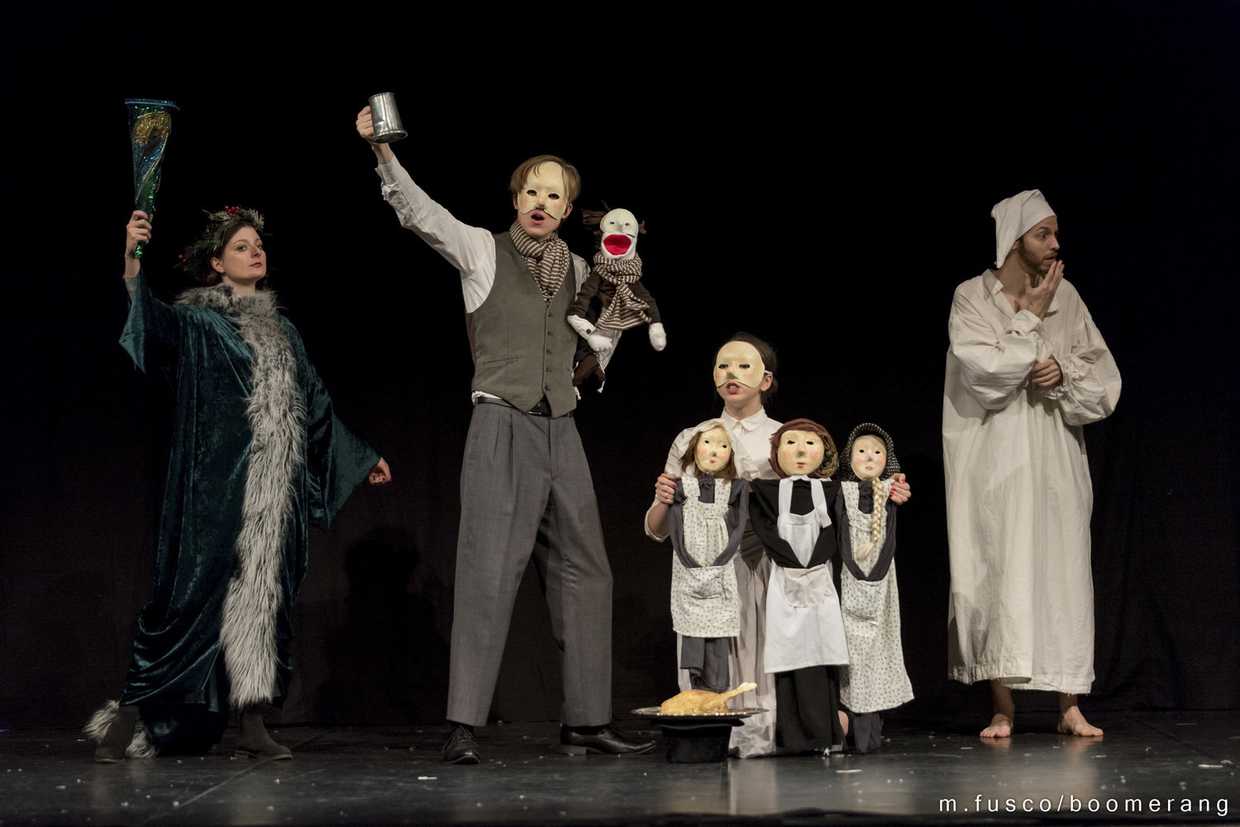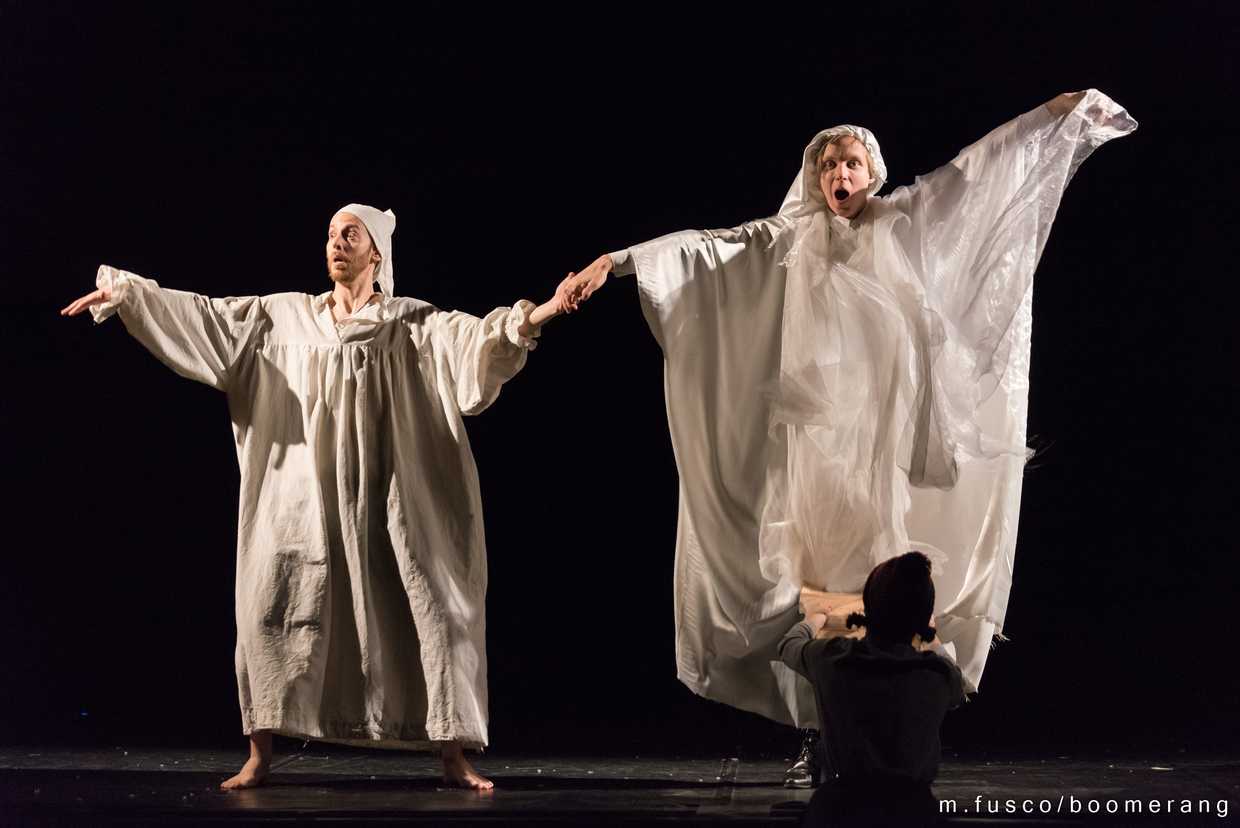How the London School Trust supports Jellyfish Theatre

The Jungle Book
I asked Sarah Simpson, one of our trainers, about Jellyfish Theatre, her educational theatre company which received a grant from The London School Trust.
When and how did you start Jellyfish Theatre?
It was back in 2005 when I was living in Italy. I’d been working with an English speaking theatre company in Milan which I loved but it involved travelling a lot. My kids were small and my partner was often away from home too, so I needed flexibility to schedule my own time. I started to make puppets and create storytelling shows for young learners. I got loads of ideas and inspiration from my own children - aka forcing them and their friends to watch my stories endlessly so I could see which bits they liked … I also devised English theatre workshops and delivered them in primary and middle schools. When I was back in London, a theatre asked me to write a play for teenagers so I made a comedy adaptation of Dracula for four actors which was really fun, and I’ve just carried on from there.
Do you have a background in theatre?
My degree is in Drama and Theatre Studies and I worked as an actor before I became a teacher, mainly TIE (theatre in education). My friend and I got our Equity cards (the actors’ union) by writing and performing a show for children. We took it all over South East England and to the Edinburgh Festival. It was about picking up litter and Richard Branson sponsored us. Other jobs include touring the UK telling amazing stories about the stars inside an inflatable planetarium and working with a circus theatre company as a stilt walker. I’m terrified of heights so I can’t really believe I did this! We had so much fun performing at festivals at places like The South Bank in London and at the children’s theatre festival in Haifa, Israel.

The Jungle Book
Who's your typical audience?
In the UK it’s families with young children. The shows are very visual and so even in UK we often get families whose first language isn’t English. In Italy, our audiences are typically groups from schools and depending on the show they could be anything from three to 18 years old. Some of our recent adaptations include “The Jungle Book” for younger children, “A Christmas Carol” for eight to 13 year olds and “Jekyll and Hyde” for secondary schools.
The London School Trust aims to promote education and culture. It seems as if Jellyfish does both - could you tell us a bit more?
So the idea is to make funny, accessible and inspiring shows and to bring them to a wide range of audiences both in the UK and in other countries. I do write original stories but the majority of the work is adaptations of classics. (Dickens, Stevenson, Kipling etc) I think live theatre is increasingly important because it brings a group of people together to share an experience in real time in the same real space. There is no digital barrier.
From a practical point of view, teachers get a pack of activities designed to help them prepare their classes: a synopsis, key vocabulary, background information about the themes and messages of the story and so on. Obviously when learners come to the theatre it’s a great "real life" or "live listening" opportunity. The audience also has a Question and Answer session with the actors at the end of every performance. Teenagers have often read the original text and they tend to ask questions about the creation of the show and our interpretation of the story. Audiences of all ages like to ask the actors about their training and their lives in the UK. (Especially about their love lives! – "Do you have a boyfriend/girlfriend?" has to be the most frequently asked question ever!)

A Christmas Carol
How has the funding from the London School Trust helped Jellyfish to develop/achieve its goals/vision?
The funding from the London School Trust is extremely valuable, not only in financial terms, given the relatively small number of agencies that support independent theatre companies, but also, crucially in the sense that somebody is supporting your vision. The first time the London School Trust funded Jellyfish, it helped us to rent a theatre space and make a video of one our shows for an invited audience. That has really helped me to reflect on my work and to develop further, as well as providing Jellyfish with a promotional tool.
The current Jellyfish project is an adaptation of “The Nutcracker and the Mouse King”. It’s a really fantastic, magical story and I’m now working hard on writing the script and creating the show. It’s amazing to have this funding from the London School Trust because with this, we can invest in a beautiful set to really bring the story to life. Part of the funding will also cover the cost of professional production photographs and I’d love to be able to share these with you in December.
Does you have a permanent home or change venues?
We are a touring theatre company. Wherever we lay down our props and costumes – that’s our home. We travel as a group of five. (four actors and me) and we work with the in-house technician in the different theatres we visit. There’s a great programme called qlab that enables us to take all the lighting and sound cues on a memory stick and just plug it into a laptop when we arrive at a new venue. Most theatres give you between three and eight hours to get into the space. That means the time to install the set, focus or rig any lights we might need, try out the sound system etc. We have to be very flexible and have lots of energy because we sometimes have to do this either really early in the morning or really late at night. We are fortunate to have generous support from both the London School of English and a wonderful theatre in North London for rehearsal space.
How about your performers - do you tend to work with the same people?
I’m really lucky to work with a group of lovely, funny, creative performers. Actors are freelance obviously and they work for different theatre companies so it’s a mixture. Over the years I’ve worked with several actors on up to four different projects for example. They tend to come back to Jellyfish. It’s great to work with people you know, but it’s also exciting to work with new actors.
What's been Jellyfish Theatre's greatest moment?
Lots of things! Seeing the “sold out” message come up on a theatre website for the first time... Getting a good review... When all the kids are screaming their heads off at Mowgli to warn him that Shere Khan is near... The whole audience joining in and singing “So this is Christmas”. In “A Christmas Carol” there’s a bit where we invite two kids up to volunteer to play Young Scrooge and his sister. We hide some lines in a prop and the children read them out. Once in London a little boy volunteered to go on stage and read the Young Scrooge lines and afterwards his parents came and told me they were so happy because he’d been really struggling with learning to read.

A Christmas Carol
And how about any stressful/embarrassing moments?
Realising at midnight before a 6am flight that the Dracula coffin was too long for the show bag. We had to take it to pieces and pack it flat. Then I had this huge piece of random luggage and I needed to find a way to avoid the excess baggage charges. The only option I could find on the airline’s website was “sports equipment”, so I wrapped it up with loads of black plastic and said it was my surf board. Luckily nobody checked. It took me ages to screw it all back together again though. That was a bit stressful!
How are you hoping to develop Jellyfish Theatre further?
I’m working on incorporating even more original music and dance into the shows. Many actors I work with have amazing singing voices and can also play musical instruments. For example there’s quite a lot of live drumming in The Jungle Book and it really adds to the magic of the story.
I’d love to travel outside Europe with Jellyfish. Especially to Malaysia, Singapore, Japan. I’d really love to go to the Ricca Ricca Festival in Okinawa, Japan.
Interview by Laura Stamps, one of our trainers at The London School of English.
You can see Jellyfish Theatre in action here on their official Youtube channel
Find out more about The London School Trust, and the projects it supports here.
Glossary
- a puppet (noun) – a movable model of a person or animal which is controlled by a human performer
- to devise (verb) – think of and create
- Edinburgh Festival (name ) – one of the main performing arts festivals in the UK
- inflatable (adjective) – able to be filled with air
- a planetarium (noun) – a domed building showing images of the planets and stars
- a stilt walker (noun) – a performer who walks on long sticks
- props (plural noun) – portable objects used by actors during a performance
- to rig (verb) – assemble or set up equipment

Beauty and the Beast
Post your questions and comments:
Why study at The London School of English?
- Rated “Excellent” based on over 1750 independent client reviews
Over 100 years’ experience
Tailored training delivers clear results
Memorable experiences in London and online










